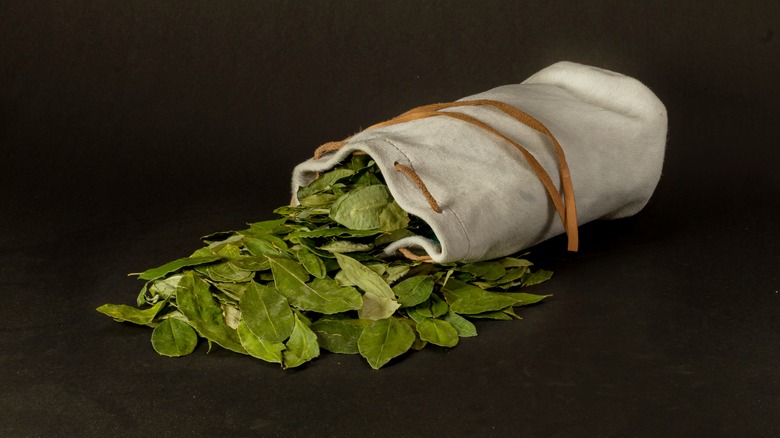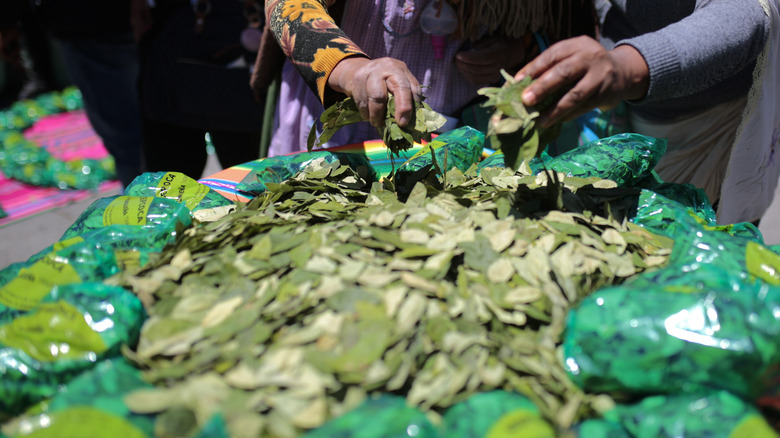Why The U.S. Is Seriously Missing Out On Coca Leaves
Plants and herbs have long been studied and widely accepted for their medicinal properties. Since the 17th century, St. John's Wort has been used as a remedy for gastrointestinal issues, reducing one's fever, and healing snake bites, per Wise Ape Tea Company. According to the National Center for Complementary and Integrative Health, its biggest use today is to reduce symptoms of various mental health disorders such as depression, ADHD, and OCD. Another example is ginseng; according to Healthline, ginseng is believed to lessen fatigue, improve brain function, stabilize blood sugar levels, and act as an antioxidant.
Unfortunately, there are some natural remedies that have been banned in the United States for various reasons. For instance, marijuana is still illegal in many states, even though researchers are investigating whether the Schedule I drug is helpful in treating epilepsy, nausea, Alzheimer's disease, and Glaucoma (per WebMD). Coca leaves also reap many benefits when used correctly, but they've been made illegal because, simply put, they're an ingredient of a Schedule II drug (per RX List).
The leaves are strictly regulated
Native to South America, the Coca plant was never intended for use as a drug (via The Culture Trip). However, it's the same plant that birthed cocaine, which is a Schedule II substance with major addictive properties (per RX List). According to American Addiction Centers, cocaine use can result in high blood pressure, shrinkage of the brain, memory loss, and death by overdose.
Thousands of years before it was extracted for drug use, Coca was used strictly medicinally. Per The Culture Trip, the plant is useful for boosting energy, decreasing appetite, eliminating pain, and curing altitude sickness — an illness that causes nausea and fatigue when exposed to high altitudes. It also can help cure a stomachache, control diabetes, and relieve flu symptoms. A nutritional plant, Coca is packed with minerals such as calcium and magnesium and vitamins including A, B1, C, and more.
So, why can't the leaves themselves be legalized for teas and supplements? The answer is: the United States regards Coca leaves in the same category as actual cocaine and even heroin, leading to its strict regulation (via TNI). Interestingly though, a single Coca leaf only contains 0.5% to 1% of cocaine alkaloid content, which is why many people push for the herbs legalization.
If you or anyone you know is struggling with addiction issues, help is available. Visit the Substance Abuse and Mental Health Services Administration website or contact SAMHSA's National Helpline at 1-800-662-HELP (4357).

